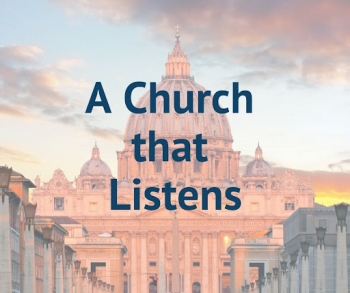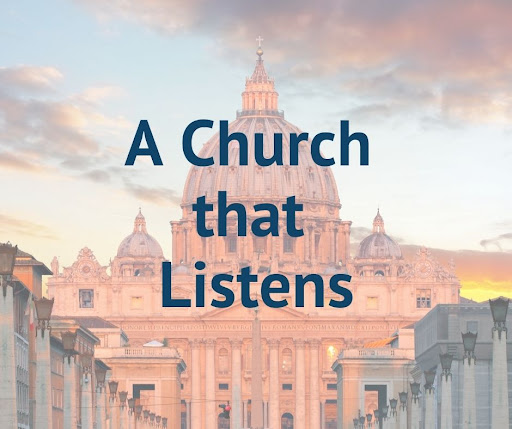
 John Kulandai
John Kulandai

When the German bishops returned to their homeland after the Council Vatican I, which proclaimed the universal supremacy of the Pope and his infallibility, German Chancellor Otto von Bismarck mocked them. He told them that they had become simply foot-soldiers and officers of the Pope and had no power of their own. The following one hundred years of history until Vatican II bore witness to the juridically diminutive role of bishops. Balancing the power of papal office and that of bishops was one of the important tasks of Vatican II which, following the New Testament data and early Christian tradition, banked on the concept of collegiality.
The Pope and the bishops stand in a collegial relationship just like Peter and other disciples, and they jointly bear the responsibility for the entire Church. The bishops are not executives of the Pope but have the power of their own to govern the local Churches. The ecumenical councils are the most intense ex
Now, what Pope Francis has done is to expand the idea and practice of the synod into a principle of synodality. In simple terms there is to be not only the synod of bishops; the whole Church needs to be on the synodal path in everyday life and at all levels. Pope Francis has projected a synod of the entire Church, going beyond the synod of bishops. Some of the participatory structures like the pastoral council, parish council, parish/diocesan financial council, presbyteral council proposed by Vatican II contained embryonically the idea of synodality, which has been a central organizing principle of the Orthodox Churches down the centuries. The synod on synodality announced for the year 2023 has a great task of reflecting on a principle that has far-reaching consequences for the reform and renewal of the Church. In fact, in the grand vision of Pope Francis, synodality should be a guiding principle for the third millennium of the Church.
Church-Context
The idea of synodality was not a bolt from the blue. The ecclesial and social situation of our times has led to the need for a significant change in the way the Church has been governed and its mission carried out. Synodality has become a must for our times. Further, the experience with participative structures like the pastoral council, parish council, financial councils in the Church has significantly contributed to activating the agency of the Christian faithful who no longer would like to be silent spectators in the affairs of the Church.
Rather, these various participative bodies have raised expectations for a Church moving along the synodal path.
The clerical sexual abuse with sensational cases propping up from every part of the globe – including India – which involved even top leadership like cardinals eroded the credibility of a Church run by the clerics. Such a Church ceded little room to the self-ex
When there are deep cracks in the columns and beams of a building, we speak of structural failure. We are facing today a structural failure in the Church which needs to be addressed with all seriousness it deserves. Synodality when practiced sincerely could save the Church from slipping into the abyss of the present crisis. After all, for many centuries in the early Christian period and some centuries in the medieval ages the Church was run on the principle “what touches all, should be deliberated and approved by all” (quod omnes tangit ab omnibus tractari et approbari debet).
Social and Cultural Context
One of the remarkable contributions of modernity is the attention to the subjectivity and agency of the people. People are not to be treated as objects or paternalistically, robbing them of their selfhood. We could note in the modern world a profound aspiration among people for freedom and autonomy and desire for expressing each one his or her views, choices, preferences, and so on. These are not alien to the core of the Gospel. Jesus was in continuous encounter and conversation with the people, desirous of knowing what they thought and finding out what their yearnings and dreams were. He was on a synodal path with the people and with the disciples.
The Gospel presents "an argumentative” Jesus who listens attentively to people, is amazed by their words, reasons with them, with the crowd, and is always ready to let others challenge him and respond sincerely and in most original ways to their probing interrogations. Most striking are the examples of his conversations with the Samaritan woman (Jn 4: 1-27), the Syrophoenician woman (Mk 7:24-30), and the Centurion (Mt 8: 5-13) – all of them from completely different backgrounds and experiences from his own. The practice of the early Church throws light on what it means to govern communities and pursue mission in the spirit of synodality and co-responsibility.
Today, for an increasing number of the Christian faithful, the Church reflects a rural type of governance with feudal values and mindset. The voices are becoming louder calling for a mode of governance that is rooted in the Gospel, and at the same time, attuned to modern sensitivity. I think the paradigm shift is in the model of science which has also lessons for transformation in the Church. In the Newtonian mechanistic model, the various components of a machine do not have an identity of their own as they simply follow the movements directed by a motor; not so in the quantum physics in which everything moves everything else and it is difficult to think or analyse in terms of cause and effect. Moreover, since there are innumerable factors at work, not everything can be laid down with certainty and things may move along very unpredictable lines as in the case of the weather. One speaks of the "Butterfly Effect", meaning that movements as insignificant as butterflies flapping their wings could even change the direction of a cyclone.
As it is, the leadership in the Church resembles the mechanistic paradigm. Synodality can be interpreted as a move to cross over to an organic model in the functioning of the Church, reflecting quantum physics. It is a model that will function based on the interdependence of everyone in the Church community. Even more, such an interdependent functioning - in short synodality - is required to discern especially in difficult times what is the mission of the Church in the larger society, in a nation. Synodality should be set in motion all the more since no one knows for sure how to proceed with the current situation in the country, calling for the entire Church for deliberating together, starting from the bottom up. A pre-requisite for the effective functioning of synodality is that there should be circulation of information assuring transparency. Taking cover under the cloak of secrecy is seen more and more as a stratagem to avoid public scrutiny and as a convenient measure to shield oneself from accountability.
Space for every voice
We often hear being said, "Church is not a democracy". If that means the Church is a communion, brotherhood and sisterhood, and a family, we can understand the statement. But if it is meant as a defence for authoritarian and monarchical practices in the Church, the statement becomes suspicious and problematic. The danger of democracy is that it easily becomes majoritarianism with no attention to the minorities and their voices. Precisely for this reason, the Church cannot be compared to democracy. The Church should be a milieu where even the smallest voice has space and acknowledgment. God was not in the storm, earthquake or fire, but in the “still, small voice” (I Kings 19:12). Truths of faith are not decided by the majority. One single person, a small group may be closer to the truth than all the rest. And hence we realize the importance of discernment, thinking together, and deciding with the common good of the Church and its mission before our eyes.
For synodality to be able to function effectively it is crucial that one sets aside personal agenda and focuses on the common good. I am reminded of the sharp comment of St Augustine who said if those who govern do not have common good as the goal, instead their personal ends, they become nothing but a band of robbers sharing the booty among themselves. The pursuit of personal agenda by the leader or by any of the Christian faithful could be a stumbling block for the effective practice of synodality in the Church.
Conclusion: Four Major Issues
I do not intend to go into the theological and scriptural foundations of synodality, nor into the historical praxis of synods down the centuries. I have written about these in my recent article “Synodality in Action with Butterfly Effect” in Vidyajyoti Journal of Theological Reflections (October 2021). Here I intend to highlight four issues that may be of great significance, especially for the Indian Church.
First, there is a need to study and analyze how well the participatory structures of Vatican II have functioned. Despite all their limitations, these participative structures, as I noted, have surely activated the agency of the Christian faithful. However, they need to be evaluated for the benefit of the future. Scientific methods could be employed to study and analyse the working of these structures, their impact, identify areas of concern, and project future prospects. This could be done region wise which will give us also a comparative picture.
Second, a crucial issue thrown up from the practice of these structures is the conflict between the consultative and the deliberative. It is not clear when there is a general consensus of the community, on what basis a Church leader could justify a different binding decision than what the community has discerned. How could one, in this case, save the Church from being thrown into the jaws of crass authoritarianism? I think Pope Paul was, indeed, a wise person with a lot of prescience. While instituting the synod through the document Apostolica Sollicitudo, he said that it would be an advisory body. But then he did not stop there. He added that this participatory body – the synod - could be empowered so that it “also can enjoy the power of decision-making”, and its deliberations and decisions only need to be ratified by the pope. This is a great model as it provides an opening to get out of the quagmire of these structures functioning as toothless consultative bodies. Empowering these structures, in the spirit of synodality, and communion, also to be deliberative and decision-making will protect the Church from the whims and fancies of unenlightened leadership.
Third, strangely this time it is the Latin Church in India that finds itself in a situation of discrimination vis-a-vis the Orientals! While the Syro-Malabar and Syro-Malankara Churches are governed by the synodal structure, according to the Eastern Code, which allows them to have their autonomy, including the power to elect bishops – only to be ratified by the Pope -- the Latin Church is deprived of self-governing synodal structure. How come in the same country facing the same situation and challenges of mission, there are two systems of governance -- one synodal and the other non-synodal? This anomaly would require to be addressed. At the same time, however, there should be an evaluation of how the synodal structure has been functioning in the two Oriental Churches. The need for it has become pressing in the face of the outbreak of scandals marring the credibility of the Catholic Church in India.
Fourth, in the present system of Church law, all the three powers – legislative, executive, and judicial -- are vested in the same office. In such a system how and to what extent could synodality function is a critical question one needs to ponder. Checks and balances of power are an absolute necessity for justice to materialize, which cannot be left to the good intentions of the office-bearer. The point is to what extent could synodality, within the present system of concentration of power, fulfill this important function. Pope Paul VI had proposed the formulation of some kind of constitutional law for the Church – lex ecclesiae fundamentalis, but this did not materialize. Could we hope that the process of reflections on synodality and the convocation of the Synod on Synodality in 2023 will lead to materializing such a project?
(The author is a former member of the International Theological Commission of the Vatican)